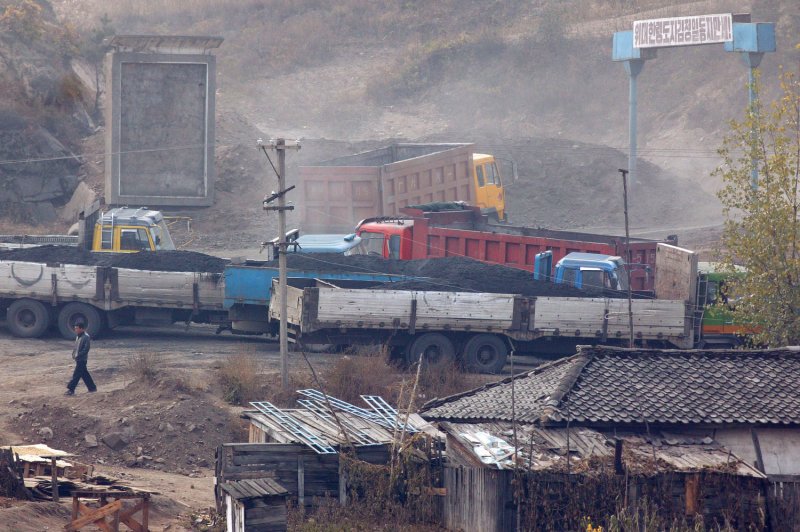Australian mining giant BHP Billiton says Chinese weakness behind major slump in revenue. FIle Photo by UPI Photo/Stephen Shaver |
License Photo
MELBOURNE, Aug. 25 (UPI) -- An oversupplied crude oil market and a slowing Chinese economy helped drag revenue down for the period ending June 30, Australia's BHP Billiton said Tuesday.
BHP reported revenue from continuing operations down 21.4 percent for the period, total revenue down 22.2 percent, and capital spending down 24 percent for the period compared with last year. The Australian company said it was taking a reigned in approach moving forward, cutting spending next year by 22 percent to $8.5 million and another 17 percent from there to $7 billion in 2017.
Profits after tax for the year ending June 30 declined 85 percent to $1.9 billion.
Energy companies are struggling to generate cash while lower crude oil prices crimp operating expenses. Crude oil prices are at historic lows because of oversupply concerns and signs of weakness in the Chinese economy.
"In the short term we expect ongoing economic reforms in China to contribute to periods of market volatility," BHP Billiton Chief Executive Officer Andrew Mackenzie said in a statement.
Beijing had pushed a policy of qualitative economic growth over quantity. Following a string of dramatic declines on the Chinese stock market, the government devalued its national currency and injected cash into the market in an effort to slow the decline.
According to the World Bank, Chinese economic growth, as measured by gross domestic product, dropped from 10.6 percent in 2010 to 7.4 percent last year.
For its iron mining sector, BHP said a slowdown in the construction sector led to a 1.3 percent decline in Chinese steel production. While recovery can't be ruled out, the company said it expected growth in that sector will be subdued.
For petroleum, total production for BHP increased by 4 percent to 256 million barrels of oil equivalent. For all of the United States, the company said production should decline by 7 percent next year.
Across the board, the company said commodity prices are expected to drift lower moving into 2016. For oil in particular, the company said it expected markets will favor the supply side on output from the United States and members of the Organization of Petroleum Exporting Countries.
"Global crude oil demand growth was outpaced by supply growth putting pressure on prices throughout the year," the company noted.















